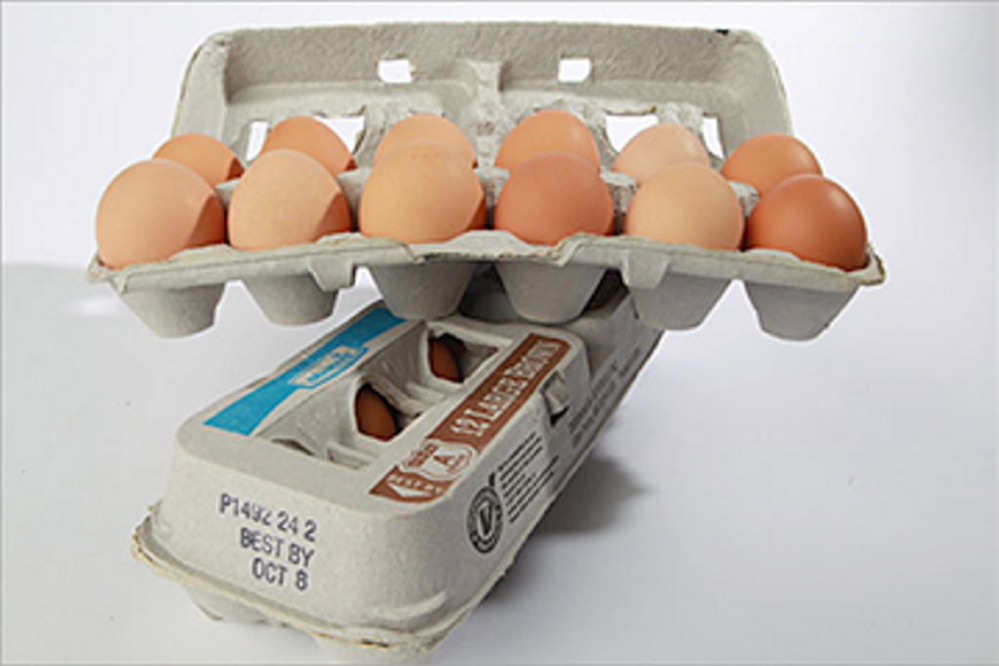Maybe it’s “Jack” DeCoster’s history of health and safety violations that has us skeptical over his role in three central Maine egg farms he owns. Or maybe it’s the repeated allegations against him, and the subsequent settlements, or the previous attempts to hide his investments.
Regardless, there are plenty of reasons not to trust any operation connected to DeCoster, and plenty of reason for state regulators to look closely at any deal in which his name is involved.
The permits for the three farms in question are being transferred to a company with longstanding ties to DeCoster, Mainers learned this week, and that transfer is under review by the Maine Department of Environment Protection.
In that review, the state must make sure that DeCoster, despite what the company says, is not involved in the farms’ operation.
To say the least, he hasn’t earned the benefit of the doubt.
The three farms, in Turner, Leeds and Winthrop, were assumed to be sold by DeCoster after he was implicated in a massive salmonella outbreak in Iowa in 2010.
However, it turns out that DeCoster never sold the Maine farms, and that he is now attempting to lease them to Hillandale Farms. A Hillandale spokeswoman said Tuesday that DeCoster will have “absolutely no role in the management” of the farms.
But DeCoster’s past, and his past dealings with Hillandale, say that statement should not be taken at face value.
Hillandale and its founder, Orland Bethel, have a long, checkered history with DeCoster.
In 2006, Ohio authorities discovered that DeCoster was the controlling investor in an Ohio egg company owned by Bethel, even though DeCoster was at that time prohibited from operating farms there.
Bethel and DeCoster were linked, too, in the 2010 salmonella outbreak, which forced farms owned by both to recall millions of eggs, but only after as many as 56,000 people were sickened.
In the subsequent criminal trial, Bethel pleaded the Fifth. DeCoster and his son both received 90 days in jail, which they are appealing.
DeCoster’s company pleaded guilty to bribing federal inspectors and paid a $6.79 million fine.
DeCoster, of course, doesn’t need help to repeatedly cross the line.
In the course of his half-century in business, DeCoster’s companies were fined or reached settlements for labor safety violations, breaking child labor laws and animal cruelty.
In Maine alone, between 2002-2008, DeCoster paid more than $600,000 in fines following repeated and serious violations of workplace safety rules.
The companies also mistreated migrant workers, forcing them to live in deplorable conditions, leading to multiple settlements.
“He is a serial lawbreaker. He seems not to even understand the purposes of the laws,” James Tierney, a state legislator in the 1970s and state attorney general in the ’80s, told the Portland Press Herald. “It’s not like he hasn’t been caught and punished, but the problem always comes right back. That’s just who he is.”
That’s a man who belongs in jail, not running a farm in Maine.
The judge hearing DeCoster’s appeal should make sure the man who doesn’t learn his lessons absolutely serves his sentence.
And the state regulators reviewing Hillandale’s permits should verify he’s not involved here.
Send questions/comments to the editors.



Comments are no longer available on this story